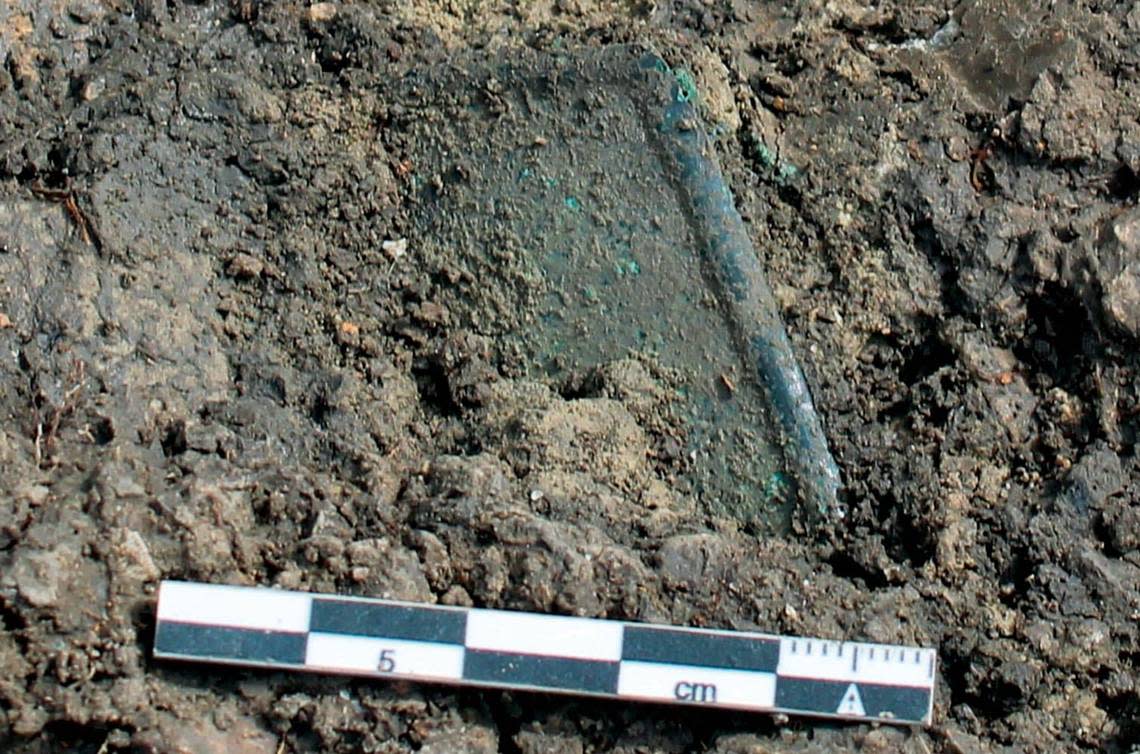Bronze hand buried under ancient castle in Spain stuns archaeologists. See why
Archaeologists in Spain have unearthed a 2,100-year-old bronze hand that both astounded and puzzled experts.
At the foot of a castle on Mount Irulegi, the invading ancient Roman army attacked and burned a town in the first century B.C. The town’s Basque inhabitants abandoned everything, the Sociedad de Ciencias Aranzadi said in a Nov. 14 release.
The ancient inhabitants left thousands of years ago, but to archaeologists the site seems frozen in time.
While excavating the site in northern Spain’s Aranguren Valley, archaeologist Leire Malkorra noticed an unusual-shaped object sticking out of the dirt, photos show. Carefully, she uncovered the object and sent it for restoration, the release said.

Peeling back layers of dirt, the restoration revealed an inscription written in an alphabet practically unknown to historians, experts said. Historians had previously speculated that ancient Basque people did not have their own alphabet, or any written language, until the Romans introduced the Latin alphabet.
This bronze hand – the hand of Irulegi – proved them wrong.

The engraving used an early Basque alphabet, experts said, the oldest and most extensive text ever written in the Basque language.
The writing proved difficult to decipher. Experts deciphered only the first word: “sorioneku” which means “of good fortune or good omen,” El Pais reported.
Archaeologists plan to study the bronze hand further and more in-depth to understand the inscription and what this discovery reveals about the ancient Basque people, the release said.
Aranguren is about 235 miles northeast of Madrid.
Google Translate was used to translate the news release from Sociedad de Ciencias Aranzadi.
‘Rare’ gold coin found in Canada may break record and reshape history, officials say
3,700-year-old lice comb found with oldest alphabet’s first full sentence, experts say
Secrets of a temple: Offerings to ancient water goddess uncovered in Greece, experts say
